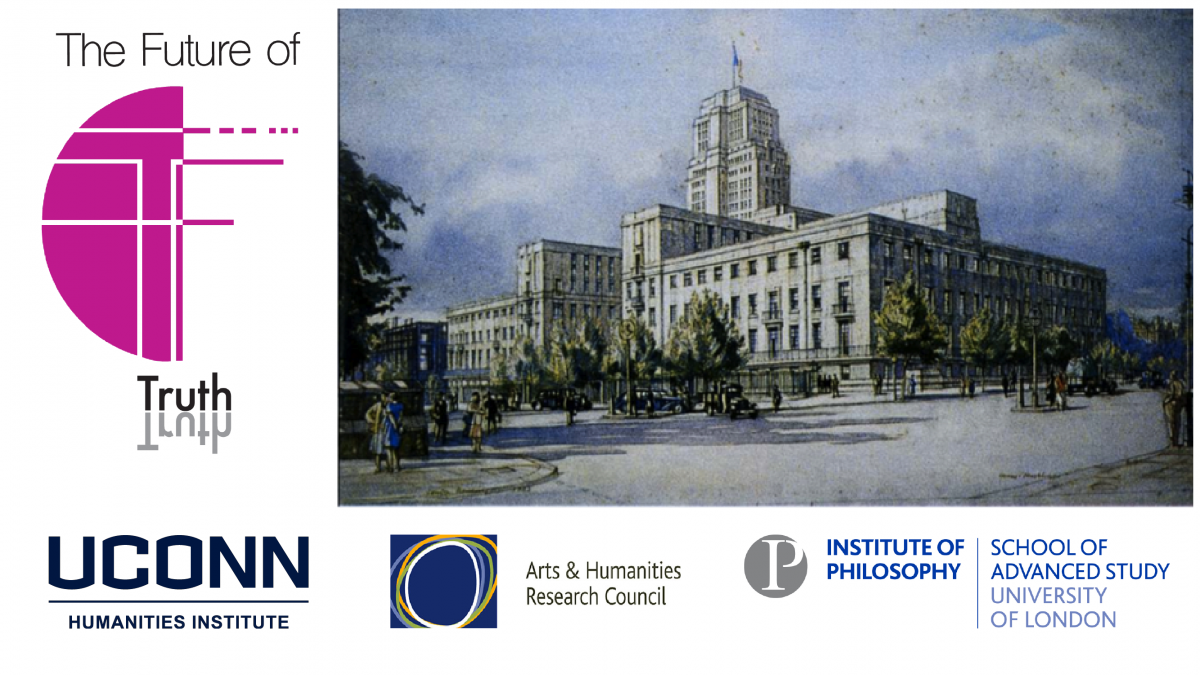UConn Humanities Institute director, Michael Lynch, joins a team of experts to speak with BBC World Service’s The Inquiry about the role of facts, arrogance, and tribalism in our societies. This episode strives to understand why we have such a great capacity to ignore facts and to believe them only when they match our convictions and what are the political, psychological, and social consequences of this increasingly entrenched behavior?
UCHI
You Should…Read: Midnight in Chernobyl (Marisa Chrysochoou, UConn-Civil and Environmental Engineering)
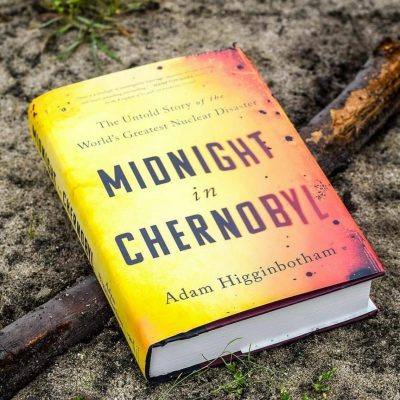 The role of the humanities and liberal arts education in the 21st century is a topic of intense debate. If the sciences are the foundation for inventing new technologies, the humanities are the foundation for implementing these technologies sustainably and ethically. Adam Higginbotham’s account of the Chernobyl accident is what the New York Times called “an enthralling and terrifying history” of technology gone wild in human hands. There is no better evidence of the role of politics, ethics and psychology in the making of a disaster over a period of decades. The Chernobyl accident was not a human error of the moment, nor a slip in judgment that inevitably happens to scientists and engineers when we fumble with experiments and machines on a daily basis. It was the result of an entire political system that pursued short-term wins, covered inconvenient truths, and promoted allegiance to ideology.
The role of the humanities and liberal arts education in the 21st century is a topic of intense debate. If the sciences are the foundation for inventing new technologies, the humanities are the foundation for implementing these technologies sustainably and ethically. Adam Higginbotham’s account of the Chernobyl accident is what the New York Times called “an enthralling and terrifying history” of technology gone wild in human hands. There is no better evidence of the role of politics, ethics and psychology in the making of a disaster over a period of decades. The Chernobyl accident was not a human error of the moment, nor a slip in judgment that inevitably happens to scientists and engineers when we fumble with experiments and machines on a daily basis. It was the result of an entire political system that pursued short-term wins, covered inconvenient truths, and promoted allegiance to ideology.
Does this remind you of anything in our current handling of a crisis?
And yet I am sure that there will be many climate-change deniers who read the book and sneer at the incompetence and blindness of their Soviet counterparts of 1986.
Regardless, you will also have supreme fun reading this book that is written as a Stephen King suspense novel.
– Marisa Chrysochoou
Professor of Civil and Environmental Engineering
University of Connecticut
 Who is Marisa Chrysochoou? Marisa Chrysochoou is a professor and the head of the Civil & Environmental Engineering Department. She received her Ph.D. in 2006 from the Stevens Institute of Technology. Her research focuses on fate and transport metals in the environment, environment and surface chemistry, and treatment and reuse of industrial waste, contaminated soil, and sediments. She has also been awarded a prestigious Marie Curie International Incoming Fellowship.
Who is Marisa Chrysochoou? Marisa Chrysochoou is a professor and the head of the Civil & Environmental Engineering Department. She received her Ph.D. in 2006 from the Stevens Institute of Technology. Her research focuses on fate and transport metals in the environment, environment and surface chemistry, and treatment and reuse of industrial waste, contaminated soil, and sediments. She has also been awarded a prestigious Marie Curie International Incoming Fellowship.
Fellows Talk: Andrea Celli on the Egyptian Slave Hagar in Early-Modern Visual Arts
A Troubling Presence: The Egyptian Slave Hagar in Early-Modern Visual Arts
Andrea Celli, Ph.D. (Department of Literatures, Cultures, and Languages; University of Connecticut)
February 26, 2020 – 4 to 5PM (UCHI Conference Room: Babbidge Library, 4th Floor South)
From late antiquity to the early-modern period, the Biblical character of Hagar, the Egyptian servant of Sarah and the mother of Abraham’s first child, Ishmael, was often employed as a disparaging device in Christian and Judaic literature. In the Middle Ages, Christian sources used Hagar and Ishmael derogatorily in relation to Muslims; they were the putative descendants of a servant and of the illegitimate son of Abraham and therefore they were not entitled to inherit God’s covenant with Abraham. Yet, Hagar became a successful and popular subject in sixteenth and seventeenth century visual arts, a shift that suggests that patrons and artists were permitted to publicly express compassion toward the fate of an outcast. How to explain this change in approach to a feminine character that often stood for deprecated religious communities and marginalized subjects? This paper will address this visual shift and the broader conceptualization of the figure of Hagar.
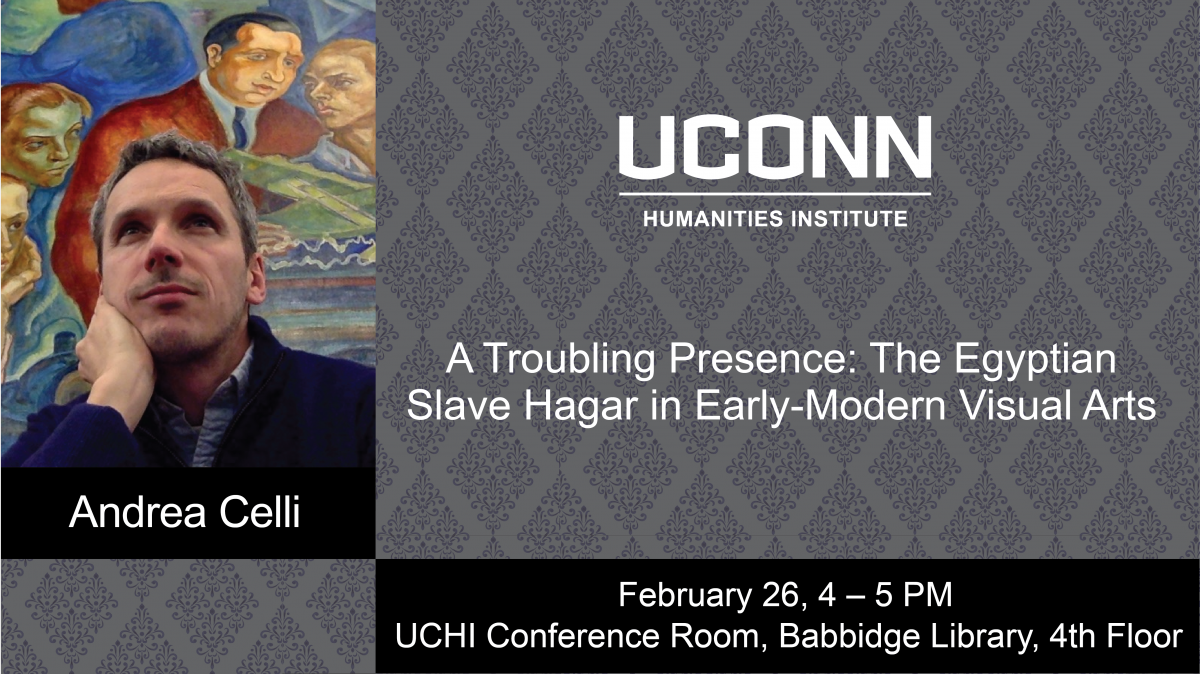
If you require accommodation to attend this event, please contact us at uchi@uconn.edu or by phone (860) 486-9057.
Who is Andrea Celli?
Andrea Celli is an Assistant Professor of Italian Literature and Cultural Studies at the University of Connecticut. He graduated in “Letteratura moderna” at the Univerità di Padova (Italy), where he also received his PhD Degree in “Filologia italiana ed Ermeneutica” (2004). In 2012–2013 he spent one year as a visiting fellow at the School of Advanced Study (Institute of Germanic and Romance Studies – University of London). From 2007 to 2014 he lectured “Ermeneutica e Storia della Critica” at the MA in “Lingua, letteratura e civiltà italiana” (University of Lugano, Switzerland). He has published several monographs, essays, and chapters, and translated a number of works from French and Arabic authors (e.g. Louis Massignon and Adonis). His current projects include a study on re-readings of the narratives of Hagar and Ishmael in counter-Reformation discourses on Islam; a monograph on Islam in early-modern Mediterranean Europe, and an Italian translation of Ernst Kantorowicz’s Das Wesen der muslimischen Handwerkerverbaende.
Fellows Talk: Alex Anievas on the Birth of the US Liberal Order
Birth of the US Liberal Order: Race and Red-Hunting over the Longue Durée
Alexander Anievas, Ph.D. (Department of Political Science, University of Connecticut)
February 19, 2020 – 4 to 5PM (UCHI Conference Room: Babbidge Library, 4th Floor South)
This paper examines the racialized foundations of American anticommunism, tracing the complex ways it became a key pillar of the US liberal order-building project. Specifically, it shows how racial anticommunism held deep roots in the nation’s political culture, developing out of the societal antagonisms bound to America’s settler-colonial state formation. This great arch of American history connected ‘race wars’ against the nation’s primordial ‘communist’ enemy, the indigenous populations, with the (geo)politics of racial anticommunism that emerged in the wake of the Bolshevik Revolution: the crucial context from which the Wilsonian order-building project originally emerged. At the moment of its inception, America’s ‘Wilsonian century’ was predicated on a form of anticommunism permeated and infused with racist ideologies and social forces that became increasingly associated with the far-right. The politics of race and the far-right thereby played a crucial role in the making of the post-1945 US liberal hegemonic order.
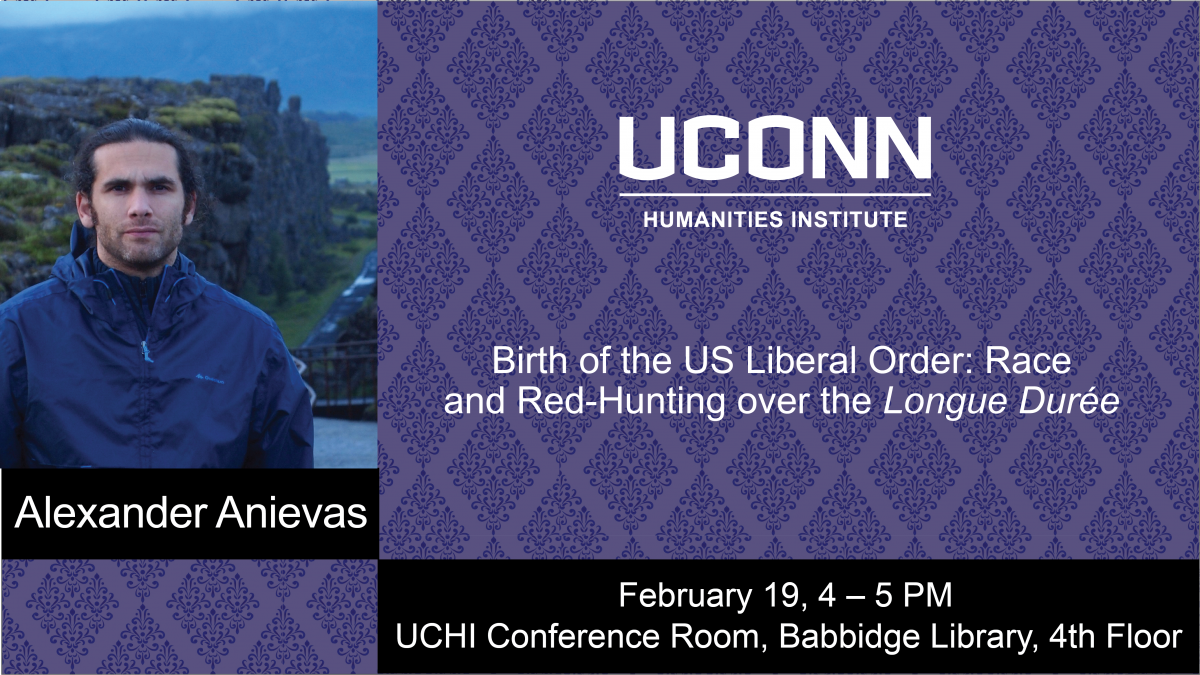
If you require accommodation to attend this event, please contact us at uchi@uconn.edu or by phone (860) 486-9057.
Who is Alexander Anievas?
Alex Anievas is an Assistant Professor of Political Science at the University of Connecticut and his research interests lie at the intersection of historical sociology, political economy and international relations. He previously held fellowships at the University of Oxford and University of Cambridge. Anievas is the author of Capital, the State, and War: Class Conflict and Geopolitics in the Thirty Years’ Crisis, 1914-1945 (University of Michigan Press, 2014), for which he was awarded the Sussex International Theory Book Prize, and co-author (with Kerem Nişancıoğlu) of How the West Came to Rule: The Geopolitical Origins of Capitalism (Pluto, 2015), winner of the ISA’s International Political Sociology Section Best Book Award and BISA’s International Political Economy Working Group Book Prize.
UCHI: A Year in Review
Thanks to the generous support of the University of Connecticut Provost’s Office, Graduate School, College of Liberal Arts and Sciences, and UConn Foundation, as well as our own grants, we have had quite a productive year so far. We have been able to fund 13 residential fellowships this year, including three visiting fellows, six UConn faculties, and four UConn graduate dissertation fellows. We funded and co-sponsored various events and programs, including a lecture and book signing by celebrated author, Colson Whitehead, presentations by award-winning and celebrated scholars and activities, Annette Vee, Rebecca Traister, and Aruna D’Souza, and the rare chance to see a performance by distinguished flamenco guitar player, Oscar Herrero.
We also welcomed World Poetry Books, the only publisher in the United States dedicated solely to publishing books of international poetry in English Translation, and we kicked off our The Future of Truth initiative with a 275,000 grant from the Henry Luce Foundation. We work hard to cultivate creativity among scholars of the arts and humanities at UConn, but we also find inspiration in the achievements and successes of our fellows, long after they leave UCHI.
Here is a snapshot of what we have achieved in just a few short months:
Fellows Talk: Emma Amador on Community and Politics in the Puerto Rican Diaspora
Demanding Dignity: Social Workers, Community Organizing, and Welfare Politics in the Puerto Rican Diaspora after 1948
Emma Amador, Ph.D. (History Department, University of Connecticut)
January 29, 2020 – 4 to 5PM (UCHI Conference Room: Babbidge Library, 4th Floor South)
This presentation will explore histories of organizing for social services within Puerto Rican communities in the United States. It will begin by examining the role of Puerto Rican women social workers as architects of the Migration Division of the Puerto Rican government’s Department of Labor after 1948, showing how within this state agency a generation of social workers challenged the racial and gender discrimination faced by Puerto Rican migrants seeking social services, housing, and care in the US. It will then show how this activism fostered the emergence of a new generation of social worker activists who in the 1960s and 70s moved into new roles as community organizers and civil rights activists. By focusing on Puerto Rican social workers role in shaping and challenging U.S. social welfare institutions to better address colonial and migrant citizens, this paper historicizes their ongoing struggle to demand dignity and social justice.
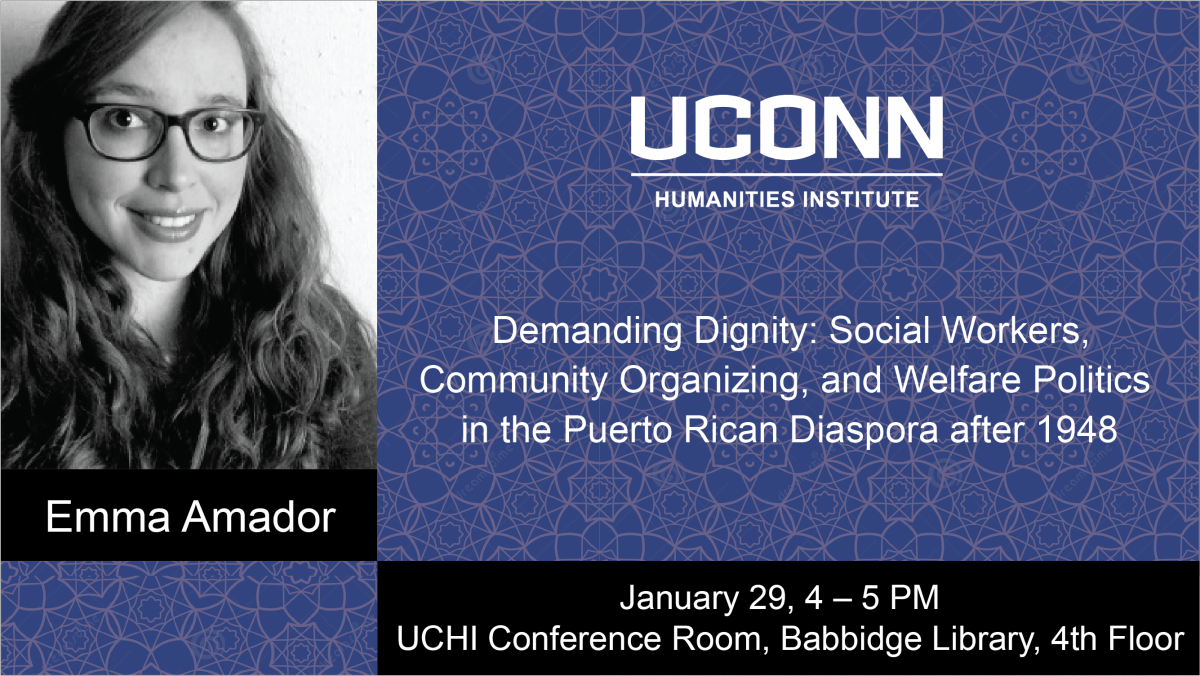
If you require accommodation to attend this event, please contact us at uchi@uconn.edu or by phone (860) 486-9057.
Who is Emma Amador?
Emma Amador is an Assistant Professor of History and Latina/o, Caribbean, and Latin American Studies. Her work focuses on Puerto Rico, Puerto Ricans, and U.S. Latina/o/x History with an emphasis on women, gender, and race. She received her Ph.D. from the University of Michigan, an M.A. from UConn, and a B.A. from Sarah Lawrence College. Before returning to UConn she held a Presidential Postdoctoral Fellowship at Brown University in the Center for the Study of Race and Ethnicity and the History Department (2016-2018). She is currently completing a book manuscript, Contesting Colonialism: Puerto Ricans and the Politics of Welfare in the 20th Century that explores the history of welfare, territorial social citizenship, and struggles for social rights in Puerto Rico and the Puerto Rican diaspora. This project examines how the U.S. welfare state became a site where Puerto Ricans have fought for social justice, labor reform, and decolonization. Her work has received support from Brown University, the SITPA Scholar Mellon Program at Duke University, the Ford Foundation Dissertation Fellowship, the Center for Puerto Rican Studies at CUNY, Hunter College, and the Rackham Graduate School at the University of Michigan.
UCHI Team Holiday Book Recommendations
Winter holidays are arguably one of the best times of the year to get cozy with a book or three, free of the hullabaloo of the academic year. Our team at the University of Connecticut Humanities Institute (UCHI) has a list of book recommendations for your holiday reading needs. We got it all: old and new, fiction, and non-fiction, novel and memoir. So get yourself some comfy clothes, pour yourself a drink, find the nearest cushiony couch, and enjoy. Happy holidays!
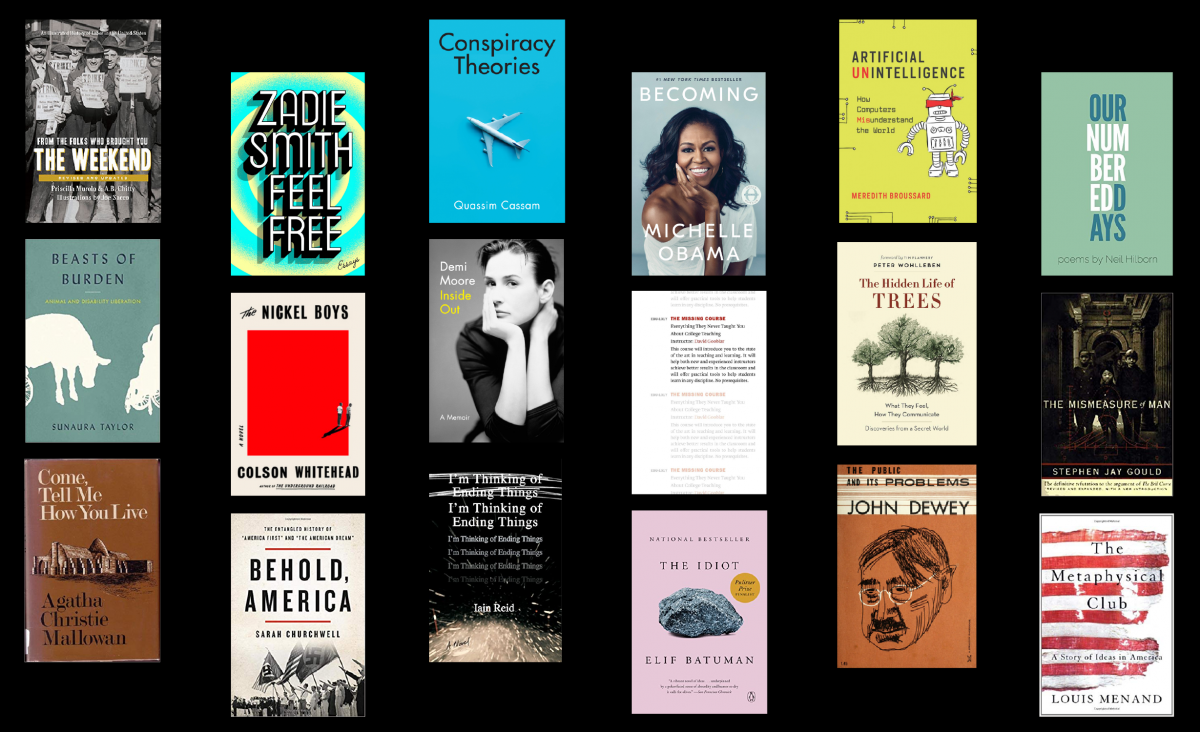
Artificial Unintelligence: How Computers Misunderstand the World (2018) by Meredith Broussard…Why? It spells out very clearly, and explains expertly (Broussard is a data journalist and former software developer), something many of us have felt at one point or another about algorithms, artificial intelligence, and computers in general: they’re terrific at certain things, terrible at a lot of very basic and very important things.
Beasts of Burden: Animal and Disability (2017) by Sunaura Taylor…Why? Her writing is smart, devastating, funny, and ultimately the hope we need for 2020.
Becoming (2018) by Michell Obama…Why? Most politicians and public figures are or seem out of touch, and many write memoirs to set up the next step in their political ambitions. Obama’s memoir is far from that; in it you will find a deeply and genuinely human story filled with successes and failures; struggles, determinations, and yes, at times strokes of luck.
Behold America: The Entangled History of “America First” and “American Dream” (2018) by Sarah Churchwell…Why? It teaches us that the fight over America’s soul is still being fought over much of the same ground and offers a disturbing history of American fascism.
Come Tell Me How You Live (1946) by Agatha Christie…Why? Because beyond the orientalist attitude that is rampant in her writing, you will find in this archaeological memoir a simple and largely true description of life in a bygone era in parts of the Middle East that are now burning in the fires of war and sectarianism. She also provides a rare and honest window into her thinking, her fears, and her endeavors to overcome a sheltered worldview.
Conspiracy Theories (2019) by Quassim Cassam…Why? Because we really need to see conspiracy theories for what they are: the weapons of political ideologies.
Feel Free (2019) by Zadie Smith…Why? Reading Smith’s essays is therapeutic and uplifting, like listening to the smartest, most thoughtful person in the room after hearing too much from others. Feeling Free brings together many of her moving, insightful thoughts on Brexit, American politics, Facebook, Key & Peele, celebrity, and more.
From Folks Who Brought You the Weekend (2003) by Priscill Murolo…Why? Because it is incumbent upon every American to know the labor history of this country. At a time when collective bargaining rights are under attack and “union” has become a four-letter word, Murolo’s accessible prose brings to life the story of America’s ongoing class struggle; one that makes us root—more than ever before—for the humanitarian demands of teachers, automakers, and academic workers across the country.
The Hidden Life of Trees (2006) by Peter Wohlleben…Why? It explores the “secret” world of trees and their intricate social networks that go largely unnoticed.
The Idiot (2017) by Elif Batuman…Why? There are lots of funny observations and reflections on language and literature, email exchanges with a love interest, and passages from a Russian textbook. This novel/memoir, set in 1995, follows the first year of college—from moving into a dorm and shopping for classes, all the way to a summer teaching English in Hungary—for Selin, a character based on Batuman herself.
I’m Thinking of Ending Things (2017) by Iain Reid…Why? Reid’s debut novel is an ambitious and provocative psychological thriller based on the tension between the protagonist and his girlfriend…or so it seems. The jury is still out as to whether he pulls it off or not. Just read it and judge for yourself, preferably before the Netflix adaptation comes out in 2020.
Inside Out: A Memoir (2019) by Demi Moore…Why? You might roll your eyes at a movie star memoir, but it’s a deeply serious account of how we are shaped by parents and our parent’s parents, addiction, and mental illness. But then also about our capacity to grow and change, to be open and present.
The Metaphysical Club (2002) by Louis Menand…Why? It is an unparalleled account of the emergence of the American pragmatist movement and the 19th-century environment which shaped the thinkers involved.
The Mismeasure of Man (1996) by Stephen Jay Gould…Why? Because sadly his detailed study of the genesis and evolution of scientific racism still has currency in the 21st century.
The Missing Course: Everything They Never Taught You about College Teaching (2019) by David Gooblar…Why? I never paid much heed to “active learning” and other phrases one finds in dreary teaching philosophies, but The Missing Course has persuaded me otherwise. It has a good blend of Gooblar’s own personal experience, educational research, and immediately useful examples (like “naive tasks”), all written in an evenhanded way, without all the cant.
The Nickel Boys (2019) by Colson Whitehead… Why? Because the book is brilliant, because he was amazing when he came to UConn, because it’s a book that confronts trauma and memory and legacy in important ways.
Our Numbered Days (2015) by Neil Hilborn…Why? It is a moving collection of slam poetry which offers an important modern perspective on mental illness.
The Public and Its Problems (1991) by John Dewey…Why? Because everyone needs some hope for the holidays. Dewey here offers his famous defense of the idea of the democratic public sphere— the dream of participatory democracy— against Lippman’s famous criticisms.
UCHI Assistant Director Author of a New Book on the Romantic Period
Yohei Igarashi, the Assistant Director of Digital Humanities and Media Studies at the University of Connecticut Humanities Institute (UCHI) is the author of a new book entitled The Connected Condition: Romanticism and the Dream of Communication (Stanford University Press). According to the website of the publisher, “the Romantic poet’s intense yearning to share thoughts and feelings often finds expression in a style that thwarts a connection with readers. Yohei Igarashi addresses this paradox by reimagining Romantic poetry as a response to the beginnings of the information age. Data collection, rampant connectivity, and efficient communication became powerful social norms during this period. The Connected Condition argues that poets responded to these developments by probing the underlying fantasy: the perfect transfer of thoughts, feelings, and information, along with media that might make such communication possible.” Igarashi, also an associate professor of English at UConn, has authored many articles on Romanticism and poetry, including in New Literary History, Romantic Circles, and Studies in Romanticism; the latter of which received the Keats-Shelley Association of America annual essay prize in 2015.
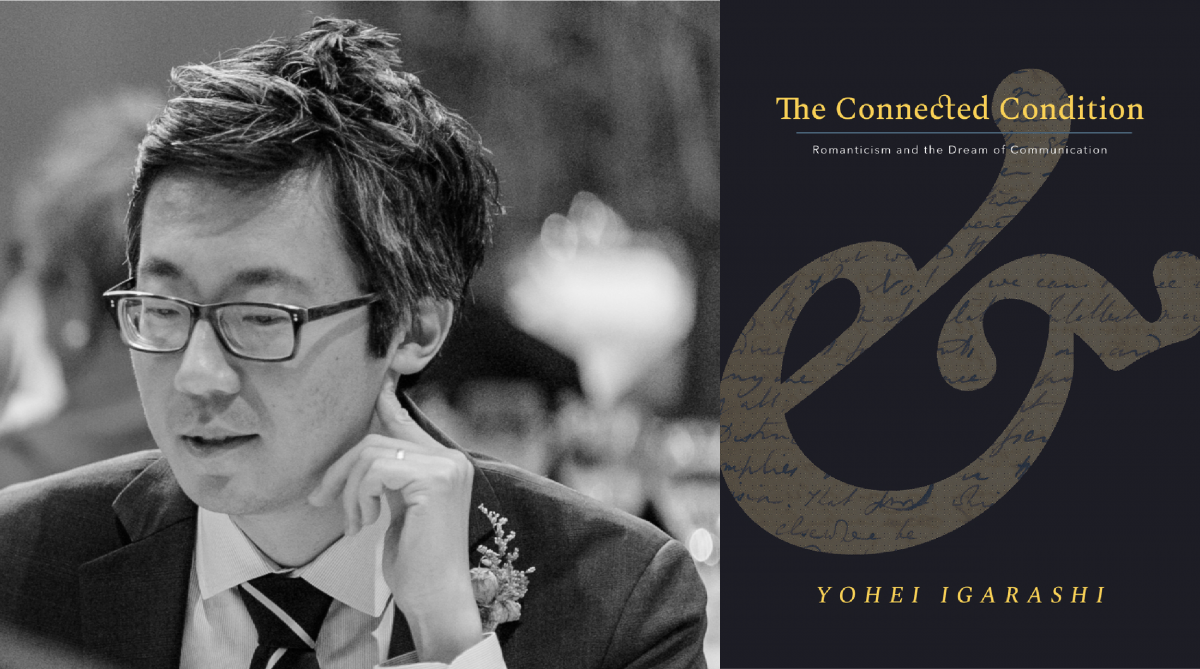
UCHI and Global Affairs Announce Global Distinguished Humanities Fellowship
In partnership with UConn Global Affairs, the University of Connecticut Humanities Institute (UCHI) is excited to announce its new Global Distinguished Humanities Fellowship (GDHF). In an effort to strengthen UConn’s commitment to the global community, this fellowship will sponsor an international faculty scholar to visit, learn from, and engage with UConn’s humanities departments.
At a moment when the humanities’ most urgent issues are expanding to touch all corners of the globe, this initiative seeks to foster international collaboration and highlight the importance of the humanities in creating a future that speaks globally to social justice, equity, and the environment. Through public lectures, faculty workshops, talks with graduate students, or other forms of engagement, the recipient of this award will challenge the UConn community to reassess the stakes of its scholarship and service, broadening the horizons of humanistic inquiry for global complexities.
Interested UConn faculty, with the endorsement of their department heads, can nominate an international faculty scholar to visit the UConn Storrs campus for no less than one week and no more than one month.During this time, the scholar will have an office space in UCHI and will be expected to participate actively in the UConn community. International faculty scholars must be from institutions with which UConn has an ongoing MOU (Memorandum of Understanding). Funding for this fellowship totals $10,000 and is expected to include the scholar’s honoraria, travel, and housing during their visit.
Applications are due by March 2, 2020 at 5 p.m.
For more information and to submit an application, visit the fellowship’s webpage.
UCHI-TFoT Co-Sponsors London Conference on Truth, Democracy
The University of Connecticut Humanities Institute (UCHI), through its latest initiative—The Future of Truth—is co-sponsoring a global conference entitled “Under Pressure: Truth, Trust and Democracy.” In light of the election of Donald Trump in the United States and the ongoing Brexit gridlock in the United Kingdom, this conference, which takes place at the Senate House, University of London on November 28–29, 2019, brings together well known scholars from around North America and Europe to examine two broad themes: “Truth and Bias in Images,” and “Truth, Propaganda, and Public Discourse.” Participants of the conference include UCHI director and UConn Board of Trustees Distinguished Professor, Michael P. Lynch. Other sponsors of this conference include: Institute of Philosophy – School of Advanced Study, University of London, and the United Kingdom Arts and Humanities Research Council.


